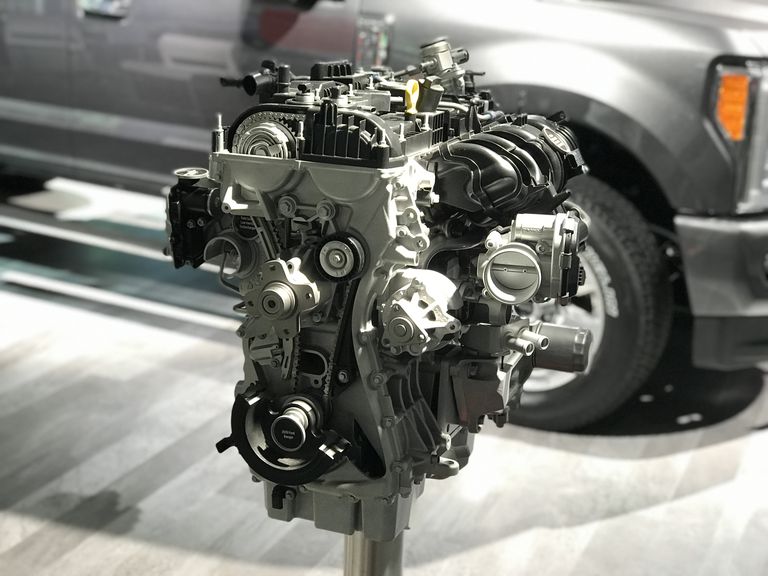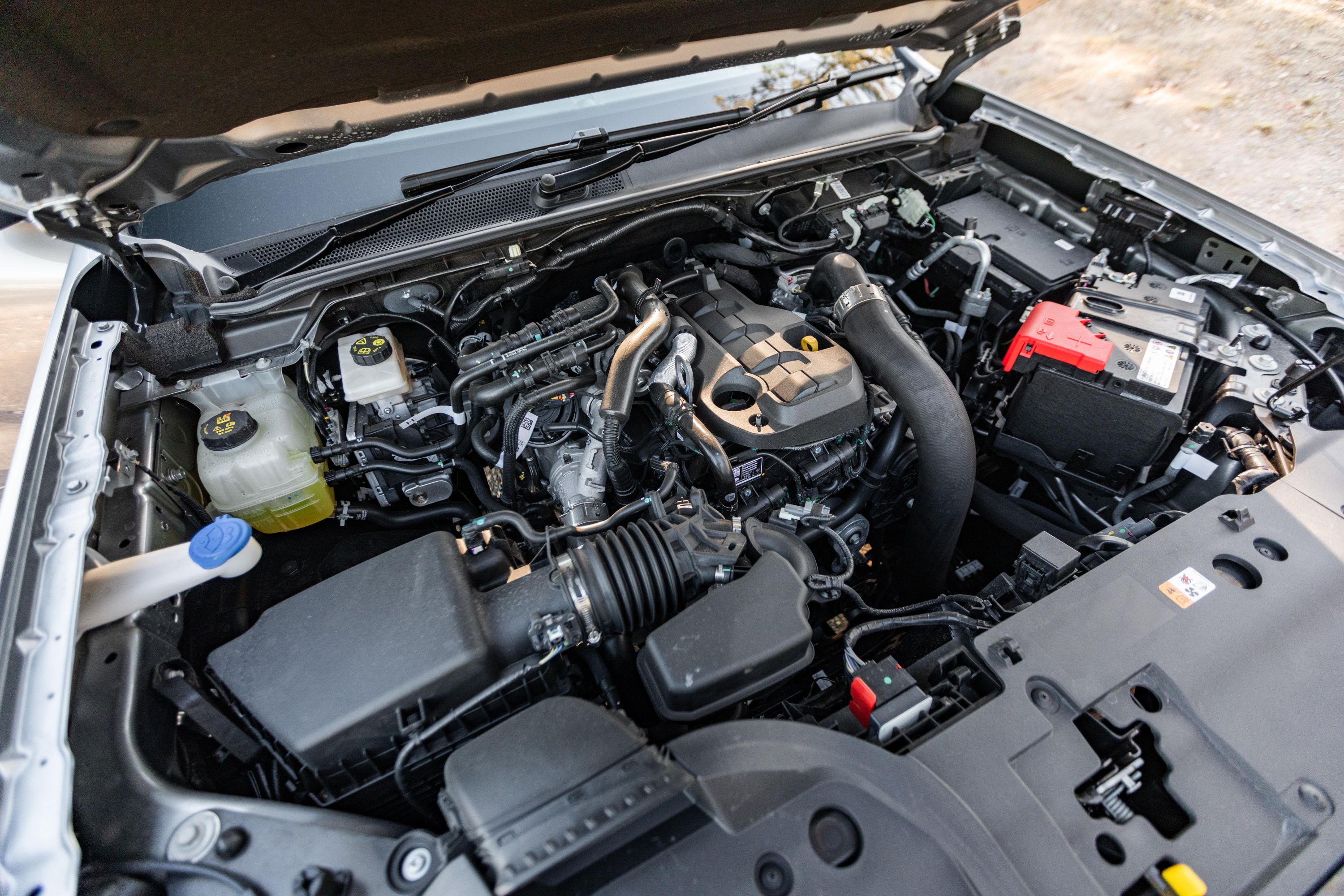Explore the Key Features of the 2.2 Ford Ranger Engine and Its Fuel Efficiency
How to Select the Right Car Engine for Optimum Efficiency and Efficiency
Selecting the appropriate cars and truck engine to achieve an optimal balance of efficiency and efficiency demands a nuanced understanding of numerous engine kinds and their certain qualities (2.2 ford ranger engine). Aspects such as engine displacement, the number of cyndrical tubes, and gas type play an essential role in determining both power output and gas economic situation.
Comprehending Engine Types
When choosing a vehicle, one of one of the most important components to take into consideration is the engine type, which offers as the heart of the vehicle. The engine kind significantly affects the vehicle's general efficiency, durability, and viability for your driving requirements. There are mostly 3 engine kinds to take into consideration: interior combustion engines (ICE), hybrid engines, and electric engines.
Interior burning engines stay the most typical, operating fuel or diesel. They are recognized for their power and velocity, making them ideal for performance-oriented automobiles. They may drop short in gas performance and ecological impact.
Hybrid engines incorporate an inner burning engine with an electric motor, supplying an equilibrium between performance and fuel economic climate. They are progressively popular for drivers seeking lowered discharges while still delivering appropriate power.
Electric engines, powered totally by batteries, are gaining grip because of their environmental benefits and lower running expenses. They offer instantaneous torque and a quiet driving experience, making them ideal for urban commuting.

Performance vs. Efficiency
Picking the right engine type entails weighing the compromises in between performance and efficiency. Performance typically describes exactly how well an engine can provide power and acceleration, which is frequently related to bigger displacement engines or those with turbocharging abilities. These engines commonly give electrifying driving experiences and fast feedback times, making them popular among lovers.
On the various other hand, effectiveness concentrates on fuel economy and lower emissions. Smaller engines, specifically those outfitted with sophisticated modern technologies such as direct fuel injection and variable shutoff timing, have a tendency to supply much better miles per gallon and lowered carbon impacts. While these engines may give up some power compared to their bigger counterparts, they commonly stand out in day-to-day driving situations where high efficiency is not always needed.
Eventually, the choice in between efficiency and performance depend upon individual concerns. A vehicle driver that values perky driving may prioritize a high-performance engine, while a person seeking cost-effective commuting might lean toward an effective option. Recognizing these trade-offs is crucial for making a notified choice that straightens with your driving demands and lifestyle, making certain that the picked engine type enhances your expectations for both performance and performance.
Secret Requirements to Take Into Consideration
Recognizing vital specifications is crucial for making an hop over to these guys informed choice concerning the appropriate car engine. When picking an engine, numerous critical variables call for factor to consider to make certain ideal performance and efficiency.
It indicates the overall volume of the engine's cyndrical tubes and usually correlates with power output; larger displacements usually generate even more power. Engines with more cyndrical tubes can provide smoother operation and higher power, while smaller arrangements can boost fuel performance.
Additionally, the engine's setup, whether inline, V-type, or rotary, affects the overall style and efficiency features of the automobile - 2.2 ford ranger engine. Turbocharging and supercharging technologies ought to likewise be examined; these boost an engine's power result without substantially enhancing its size, therefore boosting effectiveness
Fuel kind is an additional crucial factor to consider, as it affects both efficiency and prices. Lastly, the engine's compression proportion impacts efficiency and power delivery; a greater proportion usually brings about far better effectiveness, yet might call for exceptional fuel. By carefully analyzing these specs, you can choose an engine that straightens with your performance and effectiveness objectives.
Reviewing Driving Demands
Examining driving demands is a basic action in establishing the best automobile engine for your lifestyle and usage patterns. Begin by examining your day-to-day driving practices, including the frequency and period of journeys. A smaller sized engine with great gas effectiveness might be enough if your driving mostly consists of brief commutes in city environments. Alternatively, if you often undertake long-distance trips or need towing capabilities, an extra powerful engine may be needed.
Consider the surface you typically navigate. Hilly or sturdy landscapes might demand an engine with higher torque for much better performance. Additionally, assess passenger and freight needs; larger family members or those who transfer goods might take advantage of vehicles with raised power and capability.
Diesel engines typically use superior torque and gas economic situation for much heavier automobiles, while gas engines might offer a smoother and quieter trip. Element in ecological considerations, as crossbreed or electric engines can provide a more lasting option without giving up efficiency.
Future Patterns in Engine Modern Technology
As the vehicle industry remains to evolve, advancements in engine technology are leading the way for extra effective and lasting driving experiences. One significant trend is the shift toward electrification, with crossbreed and totally electric powertrains obtaining importance. Car manufacturers are spending greatly in battery modern technology to enhance power density and decrease charging times, inevitably enhancing the practicality of electric vehicles (EVs)
Another emerging pattern is the advancement of hydrogen fuel cell engines. view 2.2 ford ranger engine. These systems offer the potential for zero-emission driving while supplying refueling times Get More Info similar to standard gas engines. Furthermore, advancements in combustion modern technology, such as variable compression ratios and improved turbocharging, are enhancing standard interior burning engines for much better performance and efficiency
Digital combination is additionally a crucial aspect of future engine innovation. The implementation of fabricated intelligence and artificial intelligence permits real-time data evaluation, allowing smarter engine monitoring systems that adjust to driving conditions and enhance gas effectiveness.

Final Thought
In conclusion, choosing the suitable automobile engine requires an extensive evaluation of numerous variables, including engine kind, efficiency requirements, and efficiency goals. By recognizing the distinctions between various engine types and considering vital specs, people can align their selections with particular driving needs. As improvements in engine modern technology proceed to emerge, continuing to be informed concerning future fads will additionally enhance decision-making, inevitably resulting in a car that stabilizes performance and fuel effectiveness effectively.
Choosing the appropriate vehicle engine to achieve an ideal balance of performance and efficiency requires a nuanced understanding of various engine types and their certain qualities. There are mostly three engine types to consider: internal burning engines (ICE), hybrid engines, and electrical engines.
Performance normally refers to just how well an engine can deliver power and acceleration, which is frequently linked with bigger variation engines or those with turbocharging abilities. Diesel engines usually offer exceptional torque and fuel economic climate for much heavier automobiles, while gasoline engines may supply a smoother and quieter adventure.In verdict, picking the ideal vehicle engine requires a thorough assessment of numerous elements, consisting of engine type, efficiency demands, and effectiveness goals.